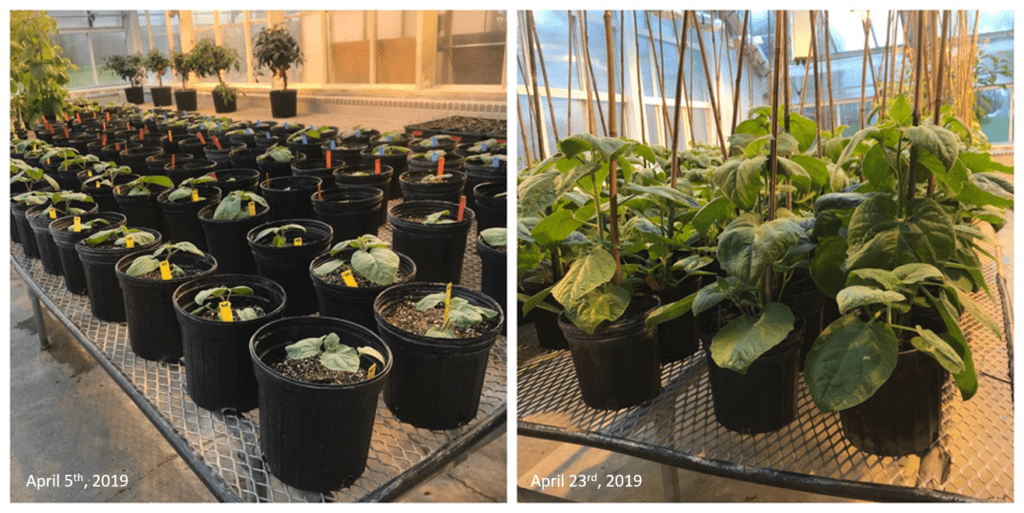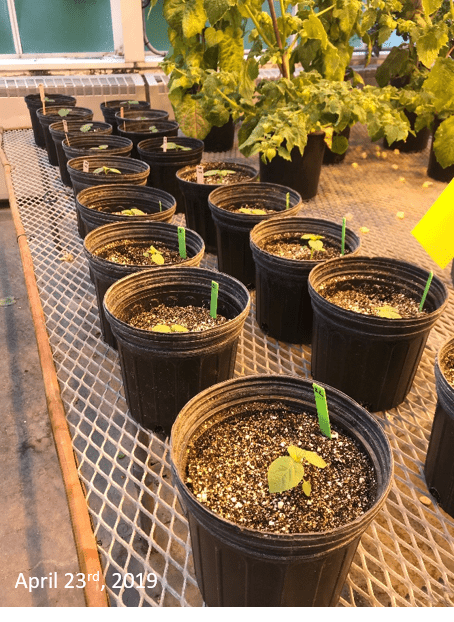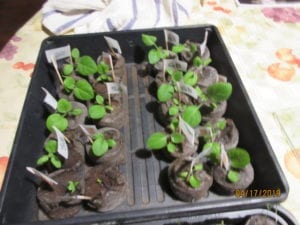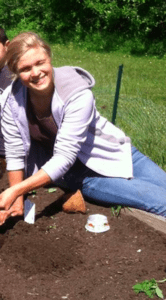Greetings everyone! Below you will find some project updates:
What we are growing
This year we are doing our first field planting of groundcherry and goldenberry. Growing our plants in the field (versus the greenhouse) allows us to better understand the challenges growers may face on a much larger scale. In preparation we’ve started over 100 plants in the greenhouse that will be transplanted towards the end of May.
Our goldenberries were started the first week of March and transplanted to pots on April 5th. Once moved to larger pots, our seedlings really took off (picture below). Just under three weeks after transplanting and they are already needing to be staked; field season can’t come soon enough!

Our groundcherries were started the first week of April and just became ready for transplanting this week (picture below). Although the seedlings are still small we know it won’t be long before they take off! Remember, once your seedlings develop their second set of leaves, it’s time to transplant to larger containers. This will yield the best results as the plants continue to grow.

We want to hear from you!
Do you have any questions or concerns? Germination, insect, or disease problems? Something interesting you’d like to share? This sort of information allows us to better help our growers. Feel free to reach out to us if something comes to mind or if you just want to share your progress. We also love receiving pictures from our participants. Below is a picture from Don Slocum, one of our citizen scientists who started his seeds in Jiffy 7 Peat Pellets at home.

New Face in Our Physalis Fan Club: Julie Davis
Meet Julie Davis! Julie is a first-year PhD student in the Cornell Department of Entomology and will be guest blogging about her research on insect interactions with Physalis species. Working in Jennifer Thaler’s lab, she studies traits that make plants attractive to pollinators but resistant to herbivores, and is interested in understanding multi-species interactions from an agro-ecological perspective. Her study system involves Physalis crop species, their wild relatives, and several exciting, beautiful specialist and generalist pollinators, herbivores and natural enemy arthropods.
Be on the lookout from a guest post from Julie in the future!

